10 lies video games tell us about outer space
Don't worry, we only mention space toilets once

Prepare to have your childhood dreams squashed
In order to keep things interesting, video games (as well as other entertainment mediums, but mostly video games) often have to stretch the truth. It's not malicious, it's just that reality can be a bummer sometimes and has a habit of dragging down fantasy experiences.
However, as huge fans of reality we wanted to set the record straight about a few things regarding the depiction of outer space in gaming...

Faster-than-light travel is inevitable
Virtually every video game that involves space includes the famous sci-fi trope of faster-than-light travel. There's a really good reason for this: Space sucks without FTL. Years of games and films with instantaneous travel have clouded our perception of just how big space actually is.
They need FTL drives to make any space story remotely interesting. Otherwise half the crew would die of old age on a single voyage to the nearest star system. Unfortunately, there's not really any current reason to believe we'll actually be able to do it in real life. We have faith that human ingenuity will find a way, but there's no rule that says we must be able to reach the stars. In fact all the physical laws still say it's going to be an incredibly arduous journey. But what about NASA's warp drive you ask? That's still an untested theory that hasn't even moved a single atom yet, let alone a star cruiser.
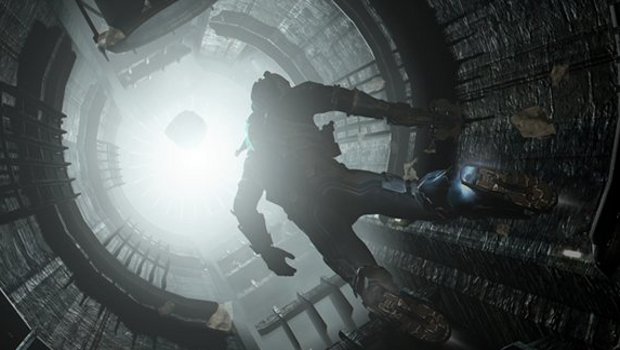
Zero gravity is cool
Dead Space is the principal offender of the zero gravity myth. Lots of games tend to treat zero gravity as though its just a fun thing to play with (that part's true), but it's also an enormous pain if you're trying to do anything important. There's no air or gravity resistance in space so your movements can feel different and harder to control.
More importantly though, you don't get to screw up in space. Accidentally dropped your wrench? It's gone forever, it might damage your ship, and you can't get a new one because the nearest Home Depot is 100,000,000 miles away. Tried to jump somewhere without a security line and missed by an inch? Have fun floating through the void for eternity. Or maybe you're just trying to fix something and you accidentally strip a bolt: Mission failure. And don't even get us started on how difficult it is to use the toilet.
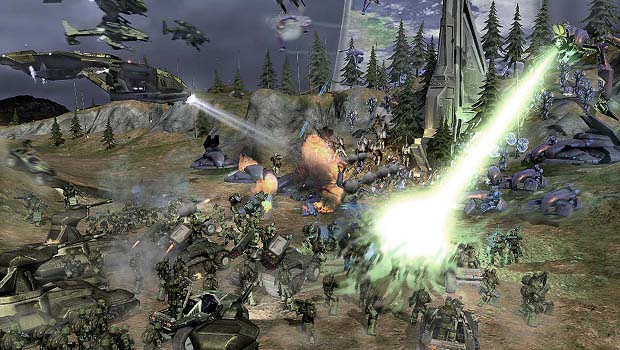
Wars would be evenly matched
For some reason we seem to have notions of grand epic struggles against alien races. Usually the aliens have us slightly outgunned, but our ingenuity ends up winning us the day. We like to think this because humans love a good underdog story.
But our underdog stories come exclusively from a planet where every nation is within a hundred years of each other in terms of technology. Even if you're outmanned, no nation on Earth is ridiculously outgunned. Even then, we see what happens in modern conflicts when one army is just 25 years more advanced than the other. Imagine what it would be like if the two sides of the war were a million years apart. Even a very reasonable one-thousand year differential produces laughable results: Samurai vs predator drone, aircraft carrier vs longbowman. It is extremely improbable that we'd meet an alien race with technology that's even in the same millennia as us. They'd either be vastly behind or vastly ahead.
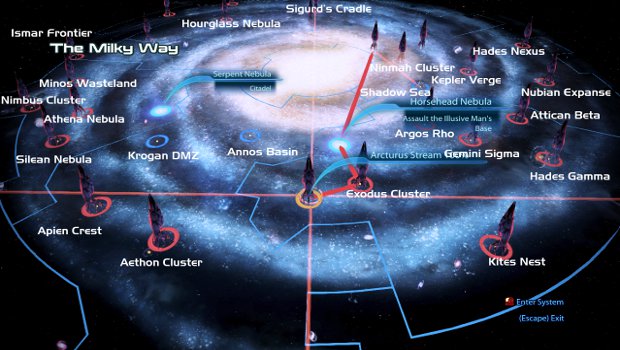
Cross-galaxy communication is super-duper easy
If you're a space general and you want to coordinate your efforts with all your space soldiers around the galaxy all you need to do is give them some orders on a two-way radio, right? Well, no. Like we've discussed, space is a jerk. It's enormous and all communications have to travel at the speed of light, which is achingly slow on a galactic scale.
So if the Illusive Man wanted to talk with Shepherd on the other side of the Milky Way it would take about 100,000 years for his message to get there...and another 100,000 for a reply. Even in the nearby galaxy communication is basically impossible. The nearest star is more than a light year away, so any verbal communication with a spacecraft (or civilization) will take two years. Mass Effect 2 invented a neat explanation that invokes the weird laws of quantum entanglement, but (true story) we asked a quantum entanglement physicist about it once and he said it was nonsense.

Aliens are cool/bad dudes
Video games love to portray aliens as evil creatures, but lately we've begun to see more friendly BFF-style aliens that we ally ourselves with. Frankly, both of them are fairly implausible. Why? Because there's really no reason to believe they'll be interested in us at all.
We have extremely intelligent creatures on Earth (e.g. dolphins) that simply have no interest in communicating with humans. Moreover, most humans aren't terribly interested in trying to form alliances with the apes, and we're just barely more intelligent than monkeys (not counting post-birth education). If we met a space-faring race that was as far ahead of us as we are of monkeys then they might just fly right past us. "Oh, another planet with life on it? NBD." Curiosity about other forms of life and a desire to interact with others in the galaxy may be a uniquely human trait, as far as we know.
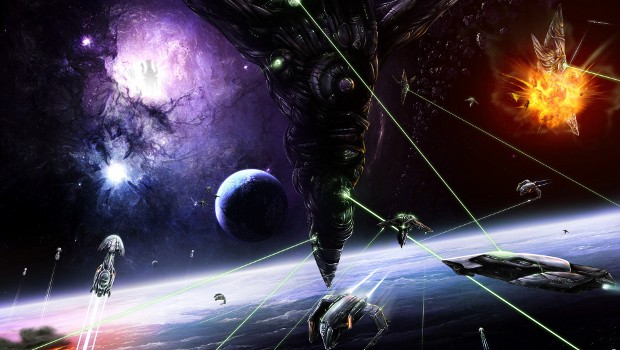
Space is visually interesting
Space is not a mystical land of Covenant and Dark Templars. It's space. A whole lot of space, dotted once in awhile with planets that look an awful lot like flecks of dust. Nevertheless, in most space-centric games you'll see grand vistas of multiple planet systems and giant bands of purple and yellow gases lilting through the vacuum. That's not really how it works. Those giant bands of gas are only visible--like fog--from a great distance, light years away. In reality those gasses are so thin there are only a few atoms per cubic foot. On Earth a cubic foot of air is comprised of trillions of atoms. You'd never see them unless you were extremely far away, and even then theyre usually not visible by human eyes.
Planets can be stunningly beautiful, but all-too-often they sort of show up in the background of a vista unannounced. That doesn't really happen. As previously mentioned, space is obnoxiously large. You don't end up within eyesight of a planet unless you meant to go there.
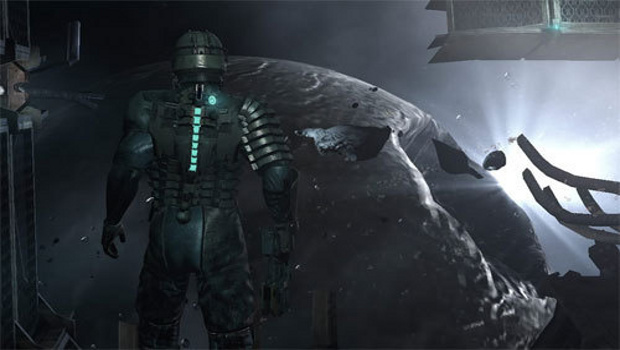
Planets can be mined super easily
Speaking of planets, why are we constantly strip mining planets of their natural resources in games? Both Dead Space and Mass Effect pulled this little stunt. First of all, that's kind of a jerk move. What if something lives down there? Or will eventually live down there in a billion years? You just stole all his/her Palladium. Jerk.
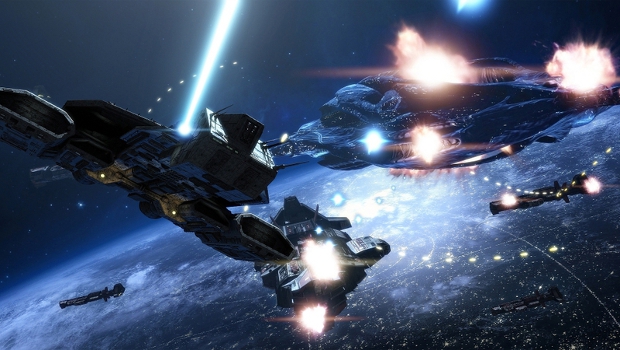
Space combat is just like air/naval combat
Combat in space would likely be so incredibly boring that humanity would just give up its million-year-old tradition of war. It would no longer be about fighting, shooting cannonballs, dropping bombs, or shooting guns. The principal challenge of war would be to actually find your opponent in the all-encompassing darkness of space.
You wouldn't get nice and close before shooting bullets/plasma at somebody. You'd hang out on the other side of the solar system and shoot a beam at them from Saturn. The other side probably wouldn't even know they were in a fight until--surprise!--hull breach, you're all dead now apparently. Humans have grand fantasies about war, and grand fantasies about space. In this case they're both exposed as false.
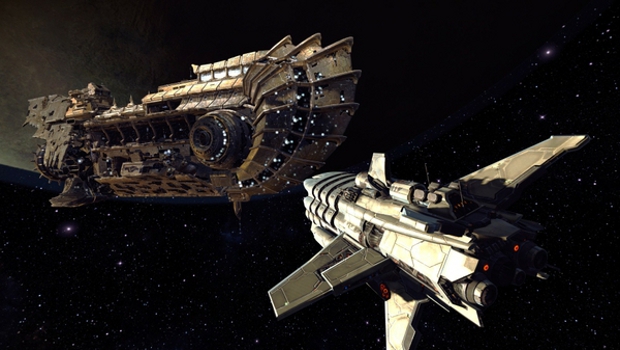
Giant spaceships are the best means of travel
This one is fairly simple, really. Giant galactic spaceships are beautiful to behold, and we all love to dream about Star Destroyers and capital ships, but there's just no really good reason to make them. Keep in mind, every scrap of metal on your ship is another pound of steel you have to move across the galaxy.
Even the modestly sized Normandy of the Mass Effect games contains huge amounts of unused space that has to be lugged around at all times which would be a big burden on any fuel source. It's far more economical and efficient to constrain the amount of material you need to transport. Space exploration seems great when we imagine ourselves standing on the bridge of a space cruiser, but the reality is that we'd probably be jammed in a tube.

What's out there is cooler than what's on earth
This is hard for space nerds like us to admit, but let's face facts here, folks: Earth is amazing. You want to go to another solar system to find aliens? What's so cool about aliens? When it comes down to it they're just animals on a different rock. We have so many cool animals here I can't even begin to describe them all.
Sci-fi authors have been convincing us for generations that beings on alien planets will look like these disgusting, spiny...alien-ish creatures. But here's a fact: most of their designs are cribbed from deep sea Earth creatures. Seriously, go watch a documentary about deep ocean animals. It will blow your mind, guaranteed. Exhibit A: that thing in the image above. Real. Earth has animals that look like carnival rides. Beat that, aliens.
Aliens are overrated. I'll take a gorilla over a Hanar any day. And Salarians are weak compared to blue whales.
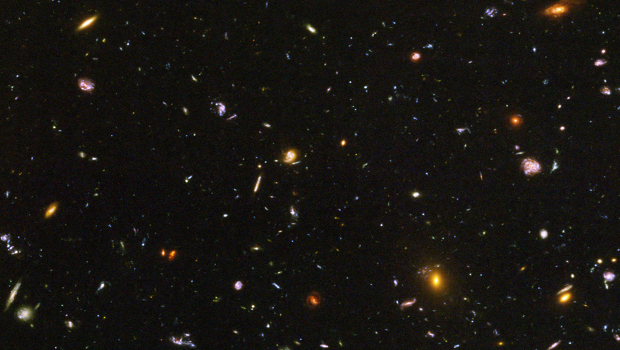
Liar liar planet on fire
So here's the thing: we really don't want to convince you that space isn't awesome. The point we're trying to make is that putting your own human body up there probably isn't as cool as games make it out to be. That said, you can and should enjoy the delicious galactic mind-candy right from our terrestrial home here on Earth. Are there any sci-fi tropes in gaming that drive you nuts? Let us know in the comments!
And if youre interested in more science-based gaming features, check out our backlog of the Science of Games column.

Andrew is a freelance video game journalist, writing for sites like Wired and GamesRadar. Andrew has also written a book called EMPIRES OF EVE: A History of the Great Wars of EVE Online.
Weekly digests, tales from the communities you love, and more
You are now subscribed
Your newsletter sign-up was successful
Want to add more newsletters?

Every Friday
GamesRadar+
Your weekly update on everything you could ever want to know about the games you already love, games we know you're going to love in the near future, and tales from the communities that surround them.

Every Thursday
GTA 6 O'clock
Our special GTA 6 newsletter, with breaking news, insider info, and rumor analysis from the award-winning GTA 6 O'clock experts.

Every Friday
Knowledge
From the creators of Edge: A weekly videogame industry newsletter with analysis from expert writers, guidance from professionals, and insight into what's on the horizon.

Every Thursday
The Setup
Hardware nerds unite, sign up to our free tech newsletter for a weekly digest of the hottest new tech, the latest gadgets on the test bench, and much more.

Every Wednesday
Switch 2 Spotlight
Sign up to our new Switch 2 newsletter, where we bring you the latest talking points on Nintendo's new console each week, bring you up to date on the news, and recommend what games to play.

Every Saturday
The Watchlist
Subscribe for a weekly digest of the movie and TV news that matters, direct to your inbox. From first-look trailers, interviews, reviews and explainers, we've got you covered.

Once a month
SFX
Get sneak previews, exclusive competitions and details of special events each month!


